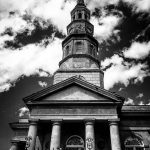Homeowners in places most exposed to climate disasters are increasingly giving up on paying their insurance premiums, leaving them exposed to financial ruin, according to sweeping new government data.
The numbers show how climate change is eroding the underpinnings of American life by making home insurance costlier and harder to hang on to, even as wildfires, hurricanes and other calamities increasingly threaten what is, for many people, their most valuable asset.
“Homeowners’ insurance is where many Americans are now feeling the financial effect of climate change directly, in their pocketbook,” said Ethan Zindler, climate counselor at the Treasury Department. “Nature doesn’t really care whether people are living in a blue state or a red state or another state, or whether you do or don’t believe in climate change.”
The rising cancellation rates are part of a broader trend captured by the Treasury Department, which analyzed information for 246 million insurance policies issued by 330 insurers nationwide from 2018 through 2022. The result is the most comprehensive look yet at the effect of climate change on the American home insurance market.
More Americans, Risking Ruin, Drop Their Home Insurance https://t.co/kZjPynDbIU
— Heather Croshaw (@HeatherCroshaw) January 17, 2025

